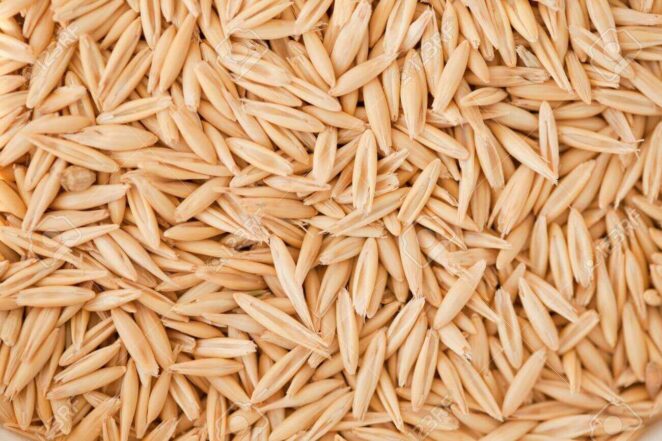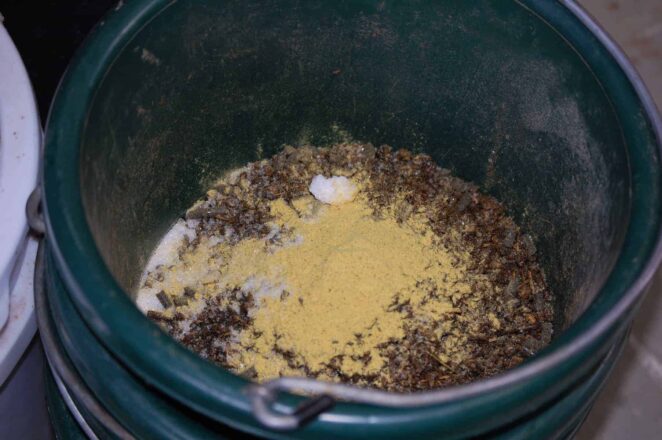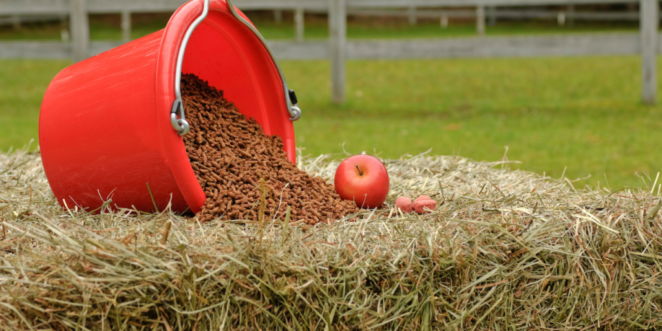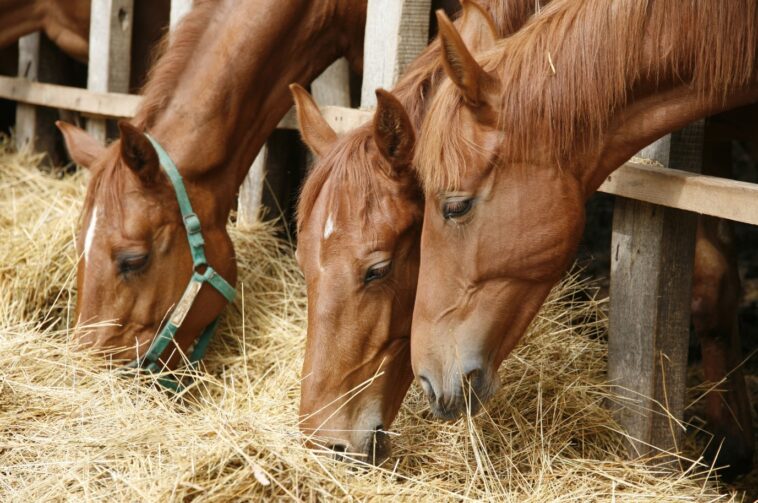In the intricate world of equine care, nutrition plays an essential role. This article provides an in-depth exploration of horse feed stores and their diverse product offerings.
We delve into the top horse feed brands, essential supplements, and the benefits of specialty feeds.
Guiding you through the decision-making process, we equip you with the knowledge to select the most suitable feed store for your equine companions, ensuring they receive the optimum nutrition for their well-being.
Understanding Equine Nutrition

To ensure the optimal health and performance of your horse, it’s crucial to understand the basics of equine nutrition.
The digestive health of a horse is paramount to its overall wellbeing, and understanding the equine digestive system can help identify nutritional deficiencies. Their unique system, designed to process small, frequent meals of high-fibre content, often struggles with modern feeding practices. This can lead to issues like colic or laminitis.
Nutritional deficiencies might not be immediately apparent, but can manifest over time as reduced performance, poor coat condition, or weakened immunity. By understanding and responding to these signs, and implementing a balanced, nutrient-rich diet, one can effectively manage a horse’s health and enhance its performance.
Equine nutrition is a complex, yet critical aspect of horse care.
Top Horse Feed Brands
Navigating the vast horse feed stores can be daunting, but several brands have emerged as leaders due to their commitment to quality and balanced equine nutrition.
When performing a brand comparison, Purina Equine feeds and Nutrena are often at the forefront. Both offer an array of products optimized for various life stages and activity levels, and provide detailed feeding schedules to guide horse owners.
Purina’s Omolene series, for instance, is renowned for its fortified blend of nutrients, while Nutrena’s SafeChoice line emphasizes digestive health.
The Triple Crown brand is another key player, particularly noted for its low-starch feeds.
These brands have earned their reputations by understanding the complex science of equine nutrition and translating it into practical feeding solutions.
Essential Horse Supplements

Transitioning from the realm of horse feeds, it’s crucial to delve into the importance of essential horse supplements in maintaining optimal equine health and performance. Beyond a balanced diet, supplements provide necessary nutrients, including vitamins, minerals, and trace elements, to support physiological functions and boost performance.
However, Supplement Overdosing Dangers are a critical concern. Excessive intake can lead to nutrient imbalances, toxicity, and severe health issues. Therefore, careful management is vital.
Organic Supplement Options are becoming increasingly popular for their minimal processing and synthetic additives. They provide a natural alternative, rich in bioavailable nutrients that can be easily assimilated by the horse’s body, contributing to overall wellbeing and peak performance.
Specialty Feeds and Their Benefits
The conversation on equine health and performance would be incomplete without considering the benefits of specialty feeds.
As horse owners aim for optimal horse health, they increasingly turn to organic feed options. These feeds, devoid of synthetic additives, pesticides, and genetically modified organisms, can provide essential nutrients that promote equine health and performance.
Moreover, specialty feeds can cater to specific dietary needs, enhancing overall well-being and reducing the risk of health issues.
However, it is essential to navigate through Specialty Feed Regulations to ensure the product’s safety and efficacy. These regulations ensure quality control, preventing the presence of harmful elements in the feed while guaranteeing the promised nutritional content.
Thus, responsibly sourced specialty feeds can be pivotal in attaining desirable equine health outcomes.
Choosing the Right Feed Store

In your quest for top-quality specialty feeds, selecting the appropriate feed store becomes an imperative step. When evaluating options, consider the store location, as proximity will influence both convenience and transport costs. Moreover, a local store often has a better grasp of the region-specific nutritional needs of equines.
Additionally, it is crucial to conduct a pricing comparison. While the lowest price may not necessarily offer the best quality, egregious pricing can strain your budget. Find a balance between cost and quality, ensuring you get the most nutritional value for your money.
Furthermore, the store should supply a diverse range of feed products, thereby catering to various dietary requirements. Stores that offer expert advice and customer service are also invaluable in helping you make an informed choice.
Frequently Asked Questions
How Does Age and Activity Level Affect the Amount and Type of Feed a Horse Needs?
Age and activity level significantly influence a horse’s nutritional requirements. Older, less active horses require fewer calories, reducing obesity risk, but may benefit from dietary supplements to support overall health and wellbeing.
Can a Horse Have Allergies to Certain Feed Products and if So, How Can They Be Identified?
Yes, horses can exhibit allergic reactions to certain feed products. Signs such as skin rashes, respiratory distress, or digestive issues can indicate allergy. Hypoallergenic feed options can be explored for such cases.
Are There Certain Seasons or Weather Conditions That Should Influence the Type of Feed Given to a Horse?
Yes, seasonal nutrition is crucial for horses. Cold weather induces higher energy requirements, necessitating increased feed. Conversely, in hotter climates, hydration and electrolyte balance are priorities, possibly requiring feed adjustments.
How Can I Transition My Horse to a New Brand or Type of Feed Without Causing Digestive Issues?
Transitioning your horse to a new feed requires careful implementation of Gradual Introduction Techniques and Feed Components Analysis. Gradually mix old and new feeds, increasing the new feed’s proportion over 7-10 days to prevent digestive upset.
What Are Some Common Mistakes Horse Owners Make When Choosing and Administering Horse Feed?
Common mistakes include succumbing to feed quality misconceptions, choosing low-quality feeds based on price, and overfeeding, which poses dangers such as obesity and digestive issues. Consistent, informed feeding practices are essential for equine health.




